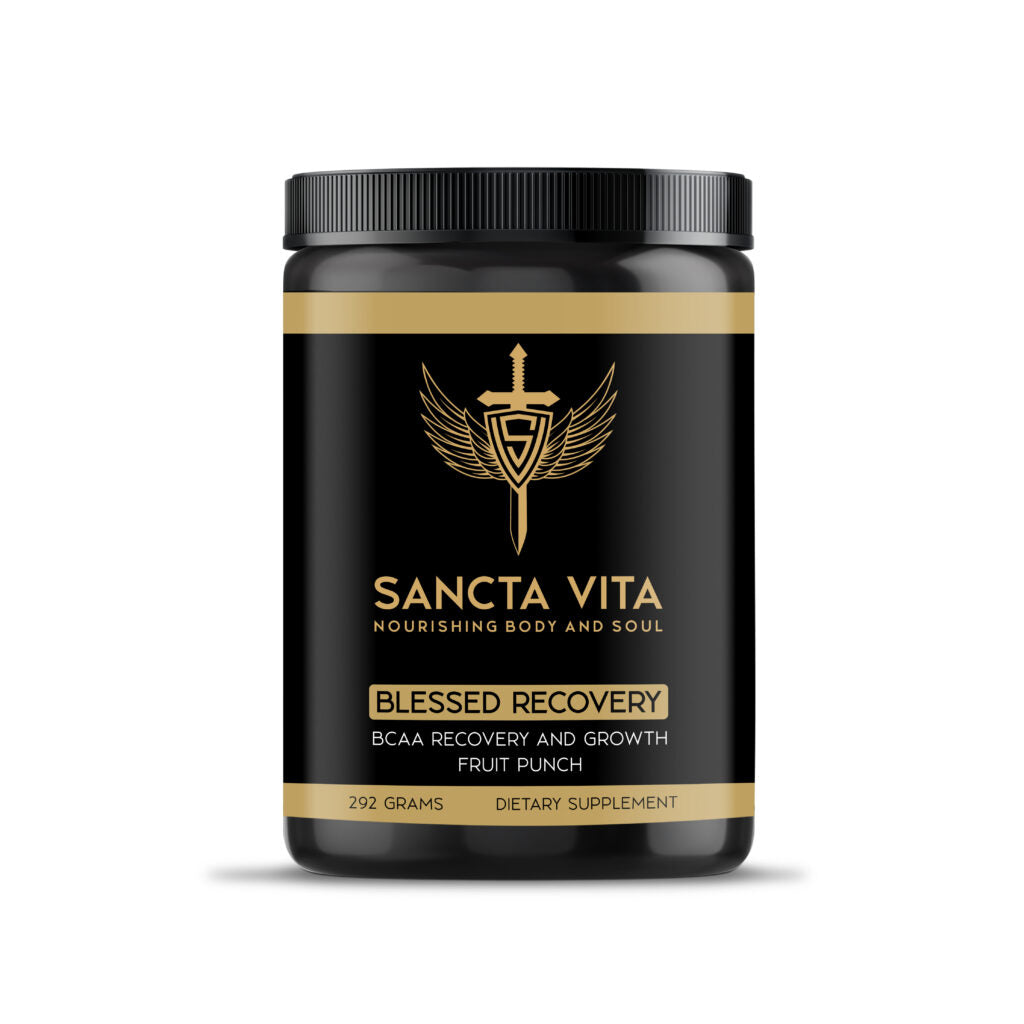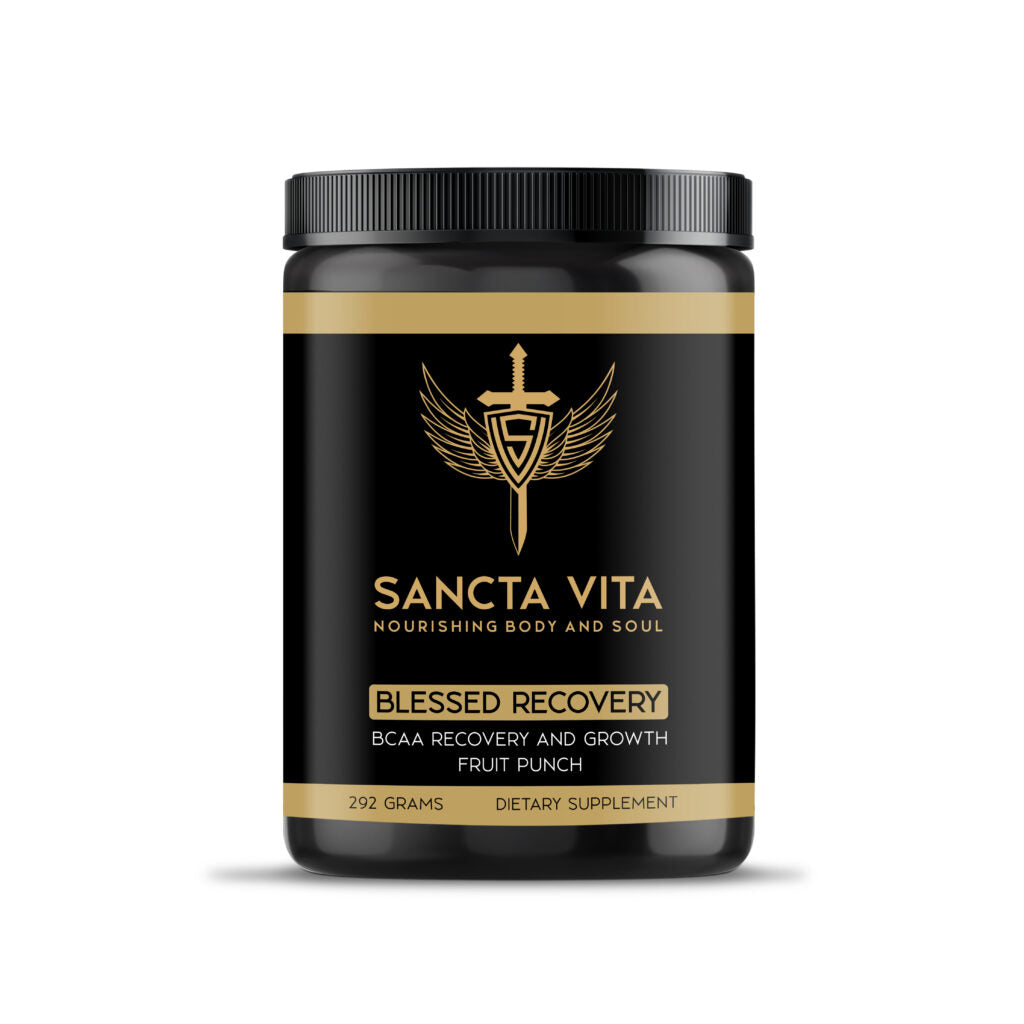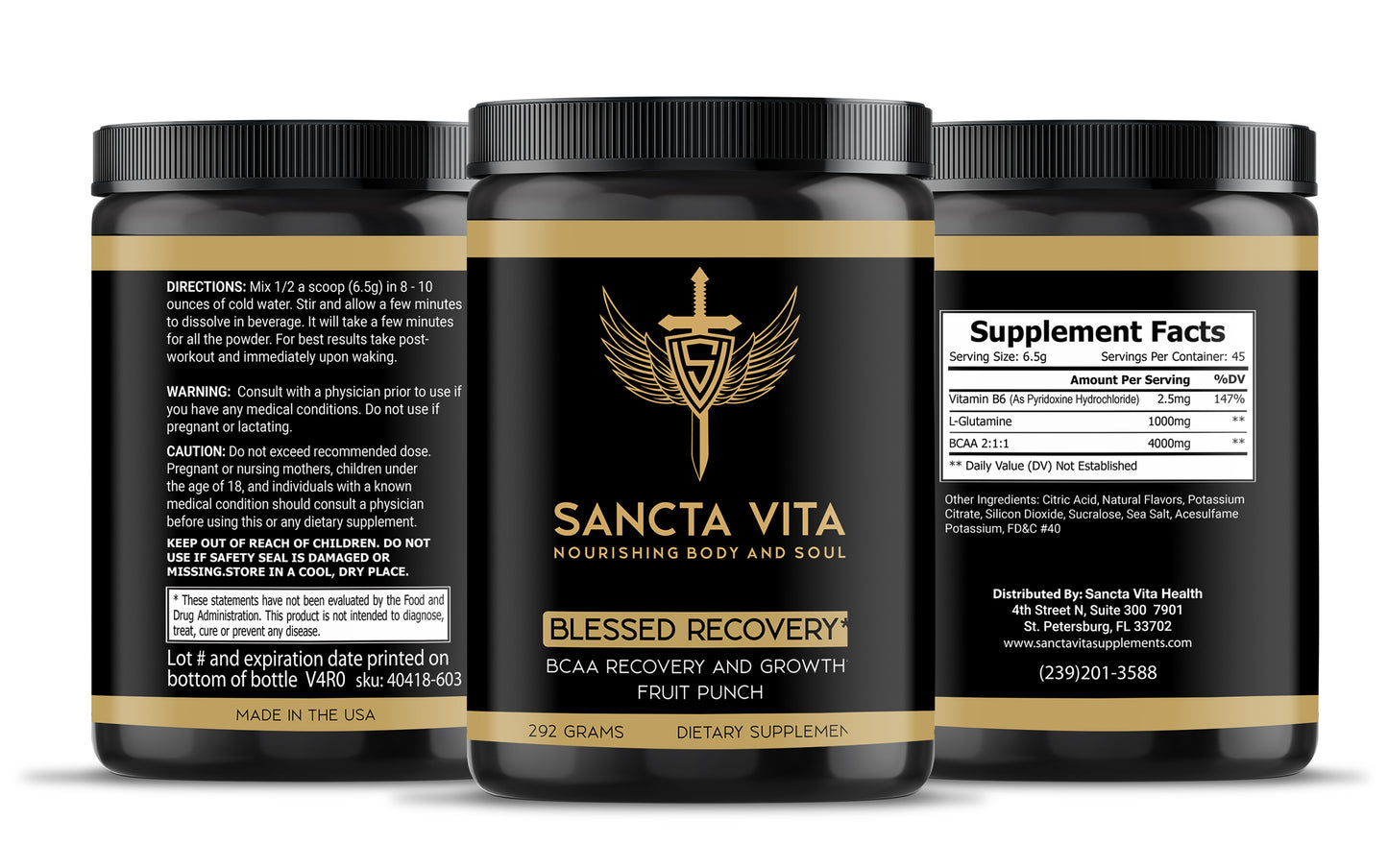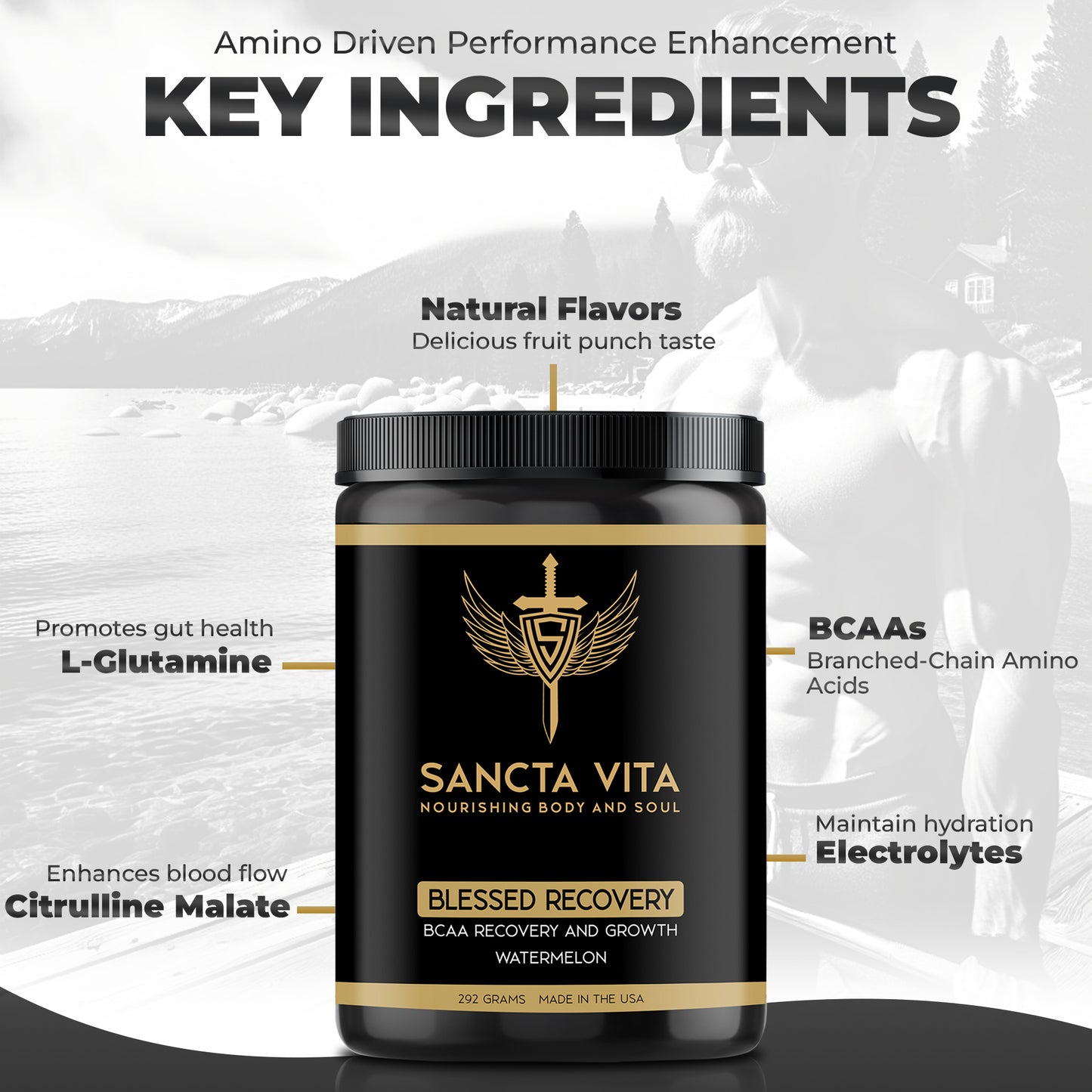
Top BCAA Benefits for Muscle Growth and Recovery
Share
BCAA play a crucial role in muscle metabolism and exercise recovery, accounting for 35% of essential amino acids in muscle proteins. These branched-chain amino acids—leucine, isoleucine, and valine—are metabolized directly in skeletal muscles, providing immediate energy and activating pathways for muscle growth and repair.
Key Takeaways:
- Amino acids promote muscle protein synthesis, potentially increasing muscle growth by up to 22% post-exercise
- Supplementation can reduce muscle soreness by up to 33% and speed up recovery
- Pre-workout BCAA intake may combat exercise fatigue by up to 15%
- Amino Acids help prevent muscle wasting during fasting or illness
- Natural sources of BCAA include chicken, eggs, and whey protein
Understanding BCAA: The Building Blocks of Muscle
BCAA, or branched-chain amino acids, are the essential building blocks of muscle tissue. These three amino acids—leucine, isoleucine, and valine—make up a significant portion of our body's amino acid pool, accounting for 14-18% of the total. What sets these amino acids apart is their unique metabolism. Unlike other amino acids processed by the liver, these amino acids are metabolized directly in skeletal muscles, providing an immediate energy source during exercise.
Of the three, leucine plays a particularly crucial role. It activates the mTOR signaling pathway, which is essential for muscle protein synthesis. This mechanism makes these amino acids, especially leucine, vital for muscle growth and recovery. For athletes and fitness enthusiasts looking to maximize their recovery, understanding the function of BCAA can be game-changing.

Key Benefits of BCAA for Fitness and Performance
The benefits of BCAA extend far beyond basic muscle maintenance. Here's a deeper look at how these amino acids can enhance your fitness journey:
Promotes muscle growth: Thanks to leucine's activation of the mTOR pathway, BCAA can significantly boost muscle protein synthesis. Studies have shown that amino acid supplementation, combined with resistance training, can increase muscle growth by up to 22% post-exercise. This makes these amino acids particularly valuable for those looking to build lean muscle mass efficiently.
Reduces muscle soreness and speeds recovery: One of the most appreciated benefits of BCAA is their ability to reduce delayed onset muscle soreness (DOMS). Research indicates that these amilo acids can decrease DOMS by up to 33%. In fact, consuming just 5.6 grams of these amino acids post-exercise can significantly reduce muscle soreness, allowing for quicker recovery and more frequent, productive workouts.
Combats exercise fatigue: BCAA compete with tryptophan for entry into the brain, effectively reducing serotonin production and, consequently, exercise-induced fatigue. Consuming 6-10 grams of BCAA pre-workout has been shown to reduce fatigue by up to 15%, potentially extending endurance and improving overall workout performance.
Prevents muscle wasting: In situations of fasting or illness, amino acids play a crucial role in maintaining muscle mass. They help maintain protein synthesis, preventing the breakdown of muscle tissue for energy. This benefit is particularly important for older adults or those with chronic illnesses, helping to preserve muscle mass and function.
Supports liver health: While not directly related to muscle performance, BCAA have shown promise in managing liver diseases and reducing symptoms of hepatic encephalopathy. Studies have reported improved symptoms in 50% of hepatic encephalopathy patients with BCAA supplementation, highlighting their potential benefits beyond muscle health.
Incorporating BCAA: Natural Sources and Supplementation
While BCAA supplements are popular, these essential amino acids are also available through various food sources. Here's a quick look at some high-amino acid foods:
- Chicken breast
- Whey protein
- Eggs
- Lean beef
- Salmon
- Turkey
- Tofu
For those considering supplementation, the guidelines vary based on individual needs and fitness goals. Athletes might benefit from 10-20 grams per day, while non-athletes may require lower doses. An effective dosage range is typically 5-20 grams per day, divided into multiple doses. For pre-workout benefits, 5-10 grams can be effective.
When deciding between powder supplementation and whole foods, consider both benefits and drawbacks. Supplements offer precise dosing and convenience, especially for enhancing performance. However, whole foods provide a complete nutrient profile and may be more cost-effective for general nutrition.
It's important to note potential risks and side effects of branch chain amino acid supplementation. These can include:
- Interference with blood glucose levels
- Interactions with certain medications (e.g., levodopa)
- Contraindication in branched-chain ketoaciduria
Always consult with a healthcare provider before starting any new supplement regimen, especially if you have pre-existing health conditions or are taking medications.
Maximizing BCAA Benefits in Your Fitness Routine
To get the most out of branch chain amino acids whether from food sources or supplements, consider these strategies:
- Timing is key: Consume BCAA before, during, or after your workout for optimal benefits.
- Pair with resistance training: these amino acids are particularly effective when combined with strength training exercises.
- Stay consistent: Regular intake, whether through diet or supplementation, yields the best results.
- Listen to your body: Adjust your intake based on your workout intensity and recovery needs.
By incorporating these amino acids strategically into your fitness and athletic routine, you can potentially see significant improvements in muscle growth, recovery time, and overall performance.
Frequently Asked Questions About BCAA
1. What are BCAAs, and why are they important?
BCAA (branched-chain amino acids) are essential amino acids—leucine, isoleucine, and valine—that play a pivotal role in muscle metabolism and recovery. They make up 35% of essential amino acids in muscle protein and are metabolized directly in skeletal muscles for energy, aiding muscle repair, growth, and exercise recovery.
2. Do BCAA really work?
Yes, BCAA have been shown to promote muscle protein synthesis, reduce muscle soreness (up to 33%), and prevent muscle breakdown. Studies also show that 5-10 grams pre-workout can combat fatigue by up to 15%, improving athletic performance and recovery.
3. What foods are high in BCAA amino acids?
Foods rich in BCAA include chicken breast, eggs, whey protein, fatty fish (like salmon), lean beef, turkey, tofu, and dairy products such as milk and yogurt. A well-rounded diet can provide sufficient BCAA for non-athletes.
4. Should I take BCAA if I already eat enough protein?
If you consume adequate protein (e.g., 1.2-2.0 g/kg for athletes), you may not need BCAA supplements. However, they could benefit those on restricted diets, during fasting periods, or seeking rapid post-workout recovery.
5. What are the side effects of BCAA supplements?
BCAA are generally safe but may interfere with blood glucose control and certain medications, like levodopa (used for Parkinson's). They are also contraindicated in individuals with branched-chain ketoaciduria. Consult a healthcare provider if you have a medical condition.
Takeaway
BCAA are essential for muscle growth, repair, and fatigue prevention, making them valuable for athletes and active individuals. While a balanced diet provides natural sources, supplementation (5-20 grams daily) can enhance muscle recovery and performance further.
Sources:
- Muscle & Fitness. Bodybuilder's Guide to BCAAs [Internet]. [cited 2023]. Available from: https://www.muscleandfitness.com/flexonline/flex-supplements/bodybuilders-guide-bcaas/
- Fitbod. Natural Food Sources Of BCAA (Plus, How Much To Eat) [Internet]. [cited 2023]. Available from: https://fitbod.me/blog/natural-food-sources-of-bcaa/
- Healthline. 5 Proven Benefits of BCAAs (Branched-Chain Amino Acids) [Internet]. [cited 2023]. Available from: https://www.healthline.com/nutrition/benefits-of-bcaa
- Runner's World. 10 Foods With BCAAs—Plus What They Actually Are [Internet]. [cited 2023]. Available from: https://www.runnersworld.com/nutrition-weight-loss/a35339392/bcaa-foods/









